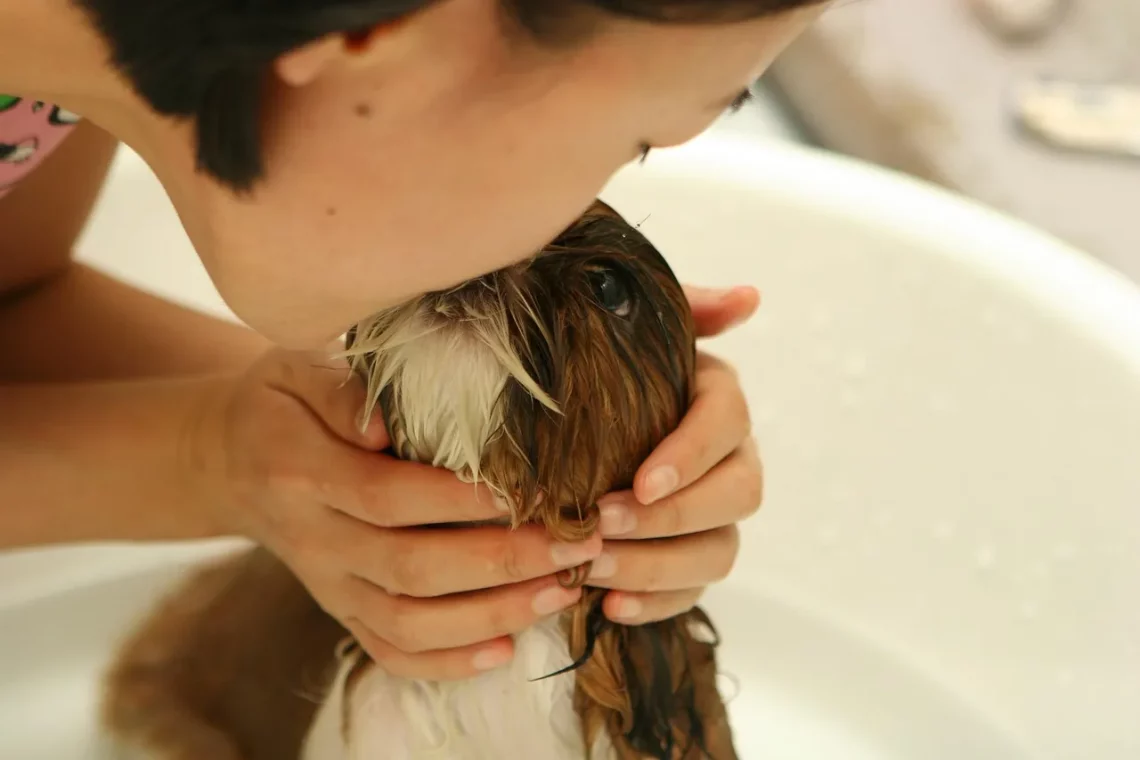
Understanding Puppy Hiccups and the Risks of Worm Infestations
Puppies are undeniably adorable, with their playful antics and boundless energy bringing joy to countless households. However, owning a puppy comes with its own set of challenges, including understanding their health needs. One common occurrence that many puppy owners encounter is hiccups. While often harmless, they can raise questions about their causes and implications. Alongside hiccups, another concern for puppy owners is the risk of worm infestations, a prevalent issue that can affect a puppy’s health and well-being.
Recognizing the signs of both hiccups and potential worm infestations is crucial for any responsible pet owner. While hiccups may seem like a trivial matter, they can sometimes indicate underlying health issues, particularly if they occur frequently or persist for extended periods. On the other hand, worms can pose a significant threat, impacting a puppy’s growth and overall health if left unaddressed. By understanding these two aspects of puppy care, owners can ensure their furry companions lead healthy, happy lives.
What Causes Puppy Hiccups?
Puppy hiccups are a common phenomenon that many pet owners will encounter at some point. These involuntary contractions of the diaphragm can be amusing to watch, but understanding their underlying causes can help alleviate concerns. Hiccups in puppies are usually harmless and can occur for a variety of reasons.
One of the primary causes of hiccups is rapid eating or drinking. Puppies, being playful and energetic, often gulp down their food and water without taking the time to chew or swallow properly. This can lead to swallowed air, which triggers hiccups. To mitigate this, feeding puppies smaller meals throughout the day or using a slow feeder can help.
Another reason puppies might experience hiccups is excitement or stress. Just like humans, puppies can become overly stimulated, leading to sudden bursts of energy followed by hiccuping. This is particularly common during playtime or when they are introduced to new environments. In these situations, the hiccups will usually subside once the puppy calms down.
Temperature changes can also play a role in triggering hiccups. If a puppy goes from a warm environment to a cooler one, or vice versa, it can lead to temporary hiccups. Similarly, after vigorous physical activity, a puppy may experience hiccups as their body tries to regulate its breathing.
In rare cases, persistent hiccups may indicate an underlying health issue, such as respiratory problems or gastrointestinal distress. If a puppy’s hiccups last for an extended period or are accompanied by other symptoms, such as lethargy, vomiting, or loss of appetite, it’s essential to consult with a veterinarian. Overall, while hiccups are generally benign, monitoring their frequency and duration is vital for any puppy owner.
The Signs of Worm Infestations in Puppies
Worm infestations are one of the most common health issues faced by puppies, and recognizing the signs early can make a significant difference in treatment and recovery. Worms can lead to serious health complications if not addressed promptly, so being vigilant is crucial.
One of the most obvious signs of a worm infestation is a change in the puppy’s appetite. A puppy may exhibit increased hunger or, conversely, a noticeable decrease in interest in food. This fluctuation can occur due to the worms consuming the nutrients that the puppy needs to thrive.
Another common symptom is a change in the puppy’s appearance. A puppy with worms may have a bloated abdomen, often described as a “pot-bellied” appearance. This is especially noticeable in young puppies and can be accompanied by weight loss despite an adequate or increased food intake.
Diarrhea is another potential indicator of worm infestations. Puppies with worms may experience frequent, watery stools, which can sometimes contain visible worms or segments. Additionally, some puppies may exhibit signs of discomfort or pain, such as whining or reluctance to engage in normal activities.
Behavioral changes can also signal a worm problem. Puppies may become lethargic, lose interest in play, or display signs of distress. If a puppy is constantly scratching or biting at its rear, this may indicate that it is experiencing discomfort from worms, particularly if it is infected with tapeworms.
Regular veterinary check-ups and fecal exams are essential for early detection and prevention of worm infestations. Deworming treatments are often necessary to eliminate the worms and improve the puppy’s overall health. By being aware of these signs, puppy owners can take proactive steps to ensure their pet remains healthy and happy.
How to Prevent Hiccups and Worm Infestations
Preventative measures are essential for maintaining a puppy’s health and well-being. While hiccups are often benign and may not require significant intervention, there are strategies to minimize their occurrence.
To reduce the likelihood of hiccups caused by rapid eating, consider using slow feed bowls or puzzle feeders. These tools can make mealtime more engaging for puppies, encouraging them to eat more slowly and chew their food adequately. Additionally, breaking meals into smaller portions can help prevent them from gulping their food too quickly.
Creating a calm environment during feeding times is equally important. Reducing distractions and allowing the puppy to focus on eating can help prevent excitement-induced hiccups. After meals, some gentle play or a short walk can aid digestion and reduce the chances of hiccups.
When it comes to preventing worm infestations, regular veterinary care is crucial. Puppies should be dewormed at specific intervals, as recommended by their veterinarian. This helps to eliminate any existing worms and prevent future infestations. Maintaining a clean living environment, including regular cleaning of the puppy’s sleeping area and yard, can also reduce the risk of exposure to parasites.
Feeding puppies a balanced diet and ensuring they receive proper vaccinations can help strengthen their immune systems, making them less susceptible to infections, including worms. Avoiding contact with potentially contaminated areas, such as dog parks or areas frequented by stray animals, can also help reduce exposure to parasites.
In conclusion, while hiccups are usually harmless and can be managed with simple strategies, worm infestations require more careful attention. By understanding both issues and taking preventative measures, puppy owners can help ensure their furry friends remain healthy and happy.
**Disclaimer**: This article is for informational purposes only and should not be considered medical advice. Always consult with a veterinarian for health-related issues concerning your pet.




